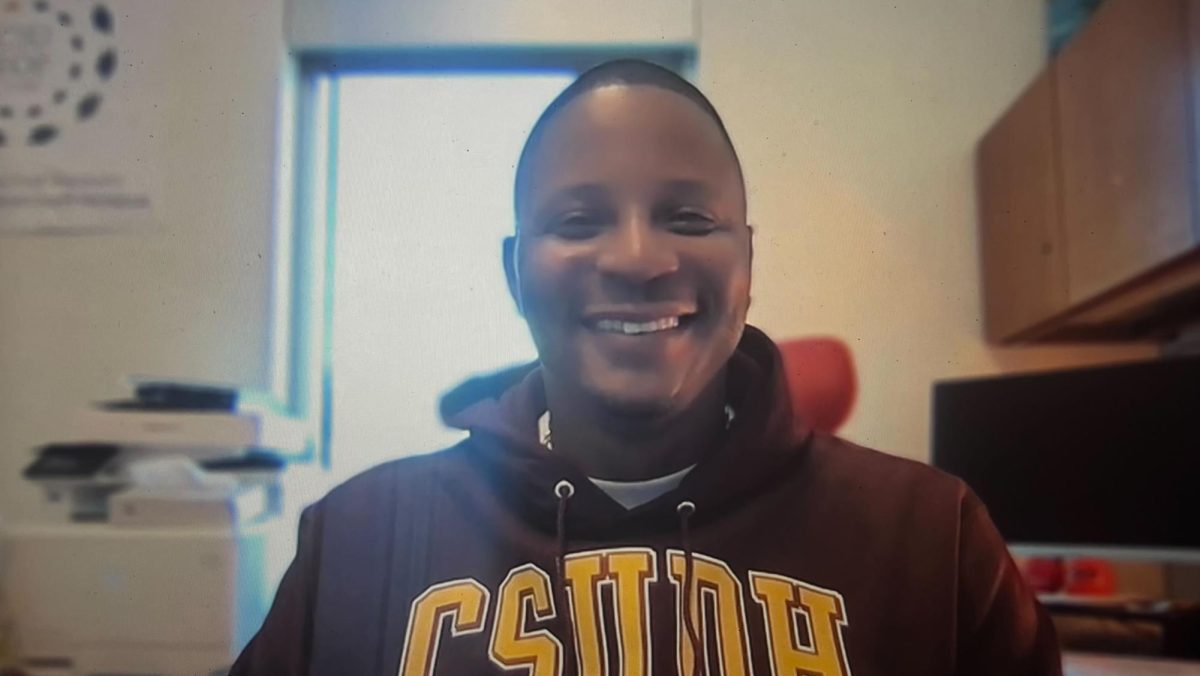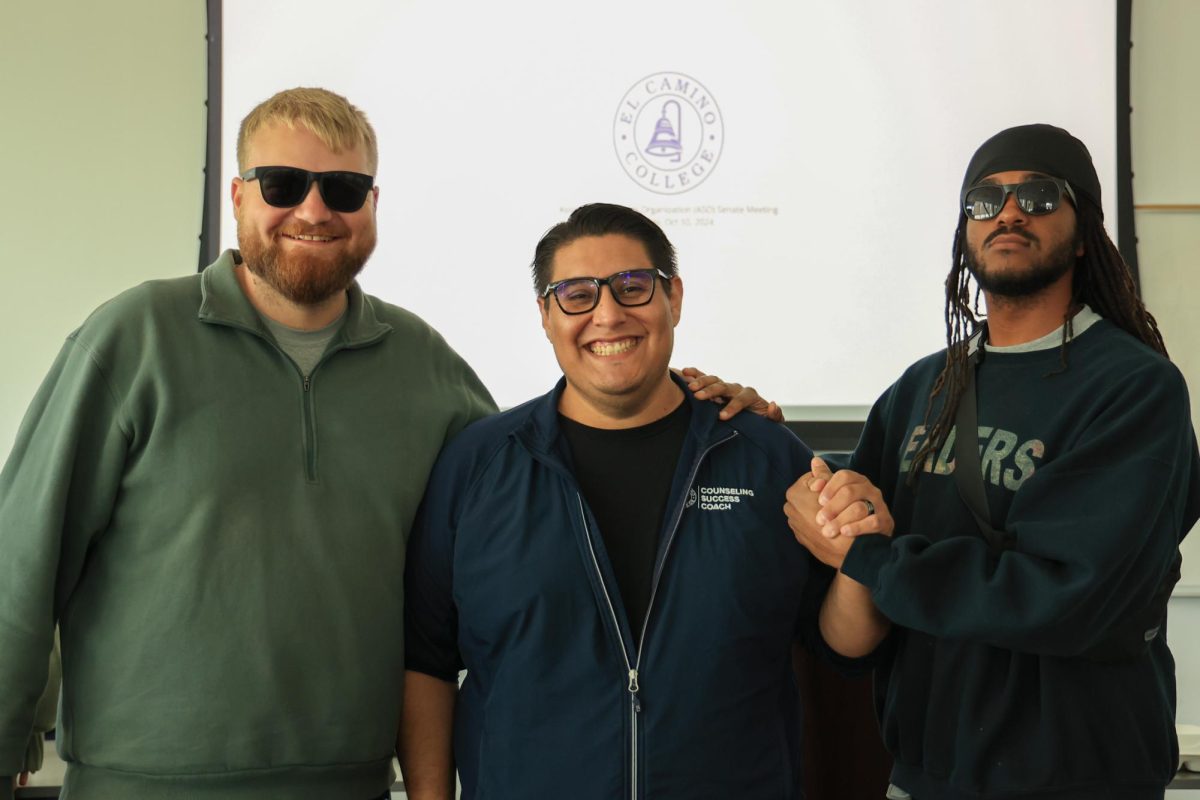The homeless man who posed as an El Camino College student was found guilty of trespassing following his arrest by the El Camino Police Department, a member of the presiding jury said.
Marquis Irons was found guilty on Tuesday, May 1 of “one count for violating the restraining order but not for (resisting arrest),” Mitch Ziegler, a member of the jury, said in a phone interview.
Ziegler said that Irons was found on the corner of Crenshaw Boulevard and Manhattan Beach Boulevard at a point of crossing, but that “he never actually walked on school grounds.”
Despite this, he was in fact in violation of his restraining order, which required Irons to be at least 100 yards from El Camino, according to the restraining order itself.
The restraining order was filed to keep Irons from coming near El Camino College, along with keeping him from coming near two members of the Humanities division, one of which is Humanities Dean Debra Breckheimer, who served as a witness in the trial.
“The (District Attorney) asked me when did things (take) place, when did I have a conversation with him, what did I observe, etc. And then…the public defender asked me questions trying to figure out why I was afraid, she asked me essentially the same questions as the (District Attorney), she was trying to make it seem like there was no reason to fear him,” Breckheimer said.
Breckheimer added that she feared Irons due to knowledge of his criminal record and an interaction with Irons on March 15, immediately following the police taking his belongings from the Humanities Building.
“He knocked on the door…he just asked if I was the dean and I said yes I am, and he kept asking me over and over again why (I called) the police, and I said that I did not, because I didn’t want his anger directed toward me…he insisted that we continue with this conversation…he said to me ‘why do you want to kick a man while he’s down’ and I said that’s not the point…he finally left because it was the day of the active shooter drills and I said (he didn’t) actually have to go to the police because (they would) be coming here…that’s when he left,” Breckheimer said.
Breckheimer was not the only one who felt fear towards Irons. Evelyn Uyemura, an English as a second language teacher at El Camino, spoke of a similar interaction with Irons.
“I got really uncomfortable when he came to my office and he stood in my office door…and I was there by myself,” Uyemura said, adding that Irons insisted that she had called the police in an attempt to remove the bags he had been keeping in the offices of the Humanities Building.
“I felt a little threatened by the way he was saying it, but I thought ‘oh he’s a homeless guy, he’s harmless,’ I did see that the police had taken his stuff, but I was not the one who called the police,” Uyemura said.
Irons has had previous interactions with law enforcement as well, “within the last year or two, he was involved in 3 contacts with the Torrance Police Department, some of which he’s been accused of aggressive behavior, he’s had contacts with other law enforcement agencies here in Los Angeles County in the past, and he’s been accused and arrested for aggressive violent behavior,” El Camino Chief of Police Michael Trevis said.
In an interview prior to the most recent arrest, Irons stated that this was “absolutely false,” though according to the Los Angeles County Sheriff’s Department Inmate Information Center, Irons has had various arrests, including a felony charge in 2016 and six misdemeanor charges since, though it is unclear which of these, if any other than the most recent, he was found guilty of.
Breckheimer added that she was not able to mention her knowledge of this criminal history in court, despite the fact “most of that fear” was due to Irons’ criminal history.
“The (District Attorney) said the defense would object and call it irrelevant information, which I personally, without a law background, didn’t think (was) irrelevant,” Breckheimer said.
Irons was not only charged with trespassing. Resisting arrest was also added to the charges, though he was found not guilty of the latter charge.
“He was handcuffed, he was being searched, his legs were apart, and then at some point he (moved) his feet (closer together), and then the police at that point (wanted) him to move his feet apart again and he (said) something along the lines of ‘my back hurts’ and then they quickly (finished) and they were pretty much done…seriously the whole extra charge technically came from about five to ten seconds of him moving his feet,” Ziegler said, adding “as he left he made a statement…to one of the officers along the lines of ‘I hope someone kills you’.”
Ziegler also believed that while Irons was guilty, this trial should not have gone to court at all.
“Even though he did technically absolutely break the restraining order, it didn’t really necessarily seem that necessary to arrest him,” Ziegler said. “They probably very easily could have, at that point, could have said you know ‘hey you’re actually in violation you need to be further away,’ but they didn’t, so once he crossed the street they made a decision to arrest him,” he added.
Ziegler stated as well that he was not the only one who believed this case did not need to go to court.
“Overall we just felt like it didn’t seem necessary. I don’t know if every single juror felt that way, at least a significant number did,” Ziegler said.
It is unknown if El Camino College has seen the last of Irons, and while the necessity of the arrest is contested, Ziegler had no reservations about if the ruling was accurate.
“I mean was justice done? Yes. Was this one necessary? I don’t feel it was,” Ziegler added.








